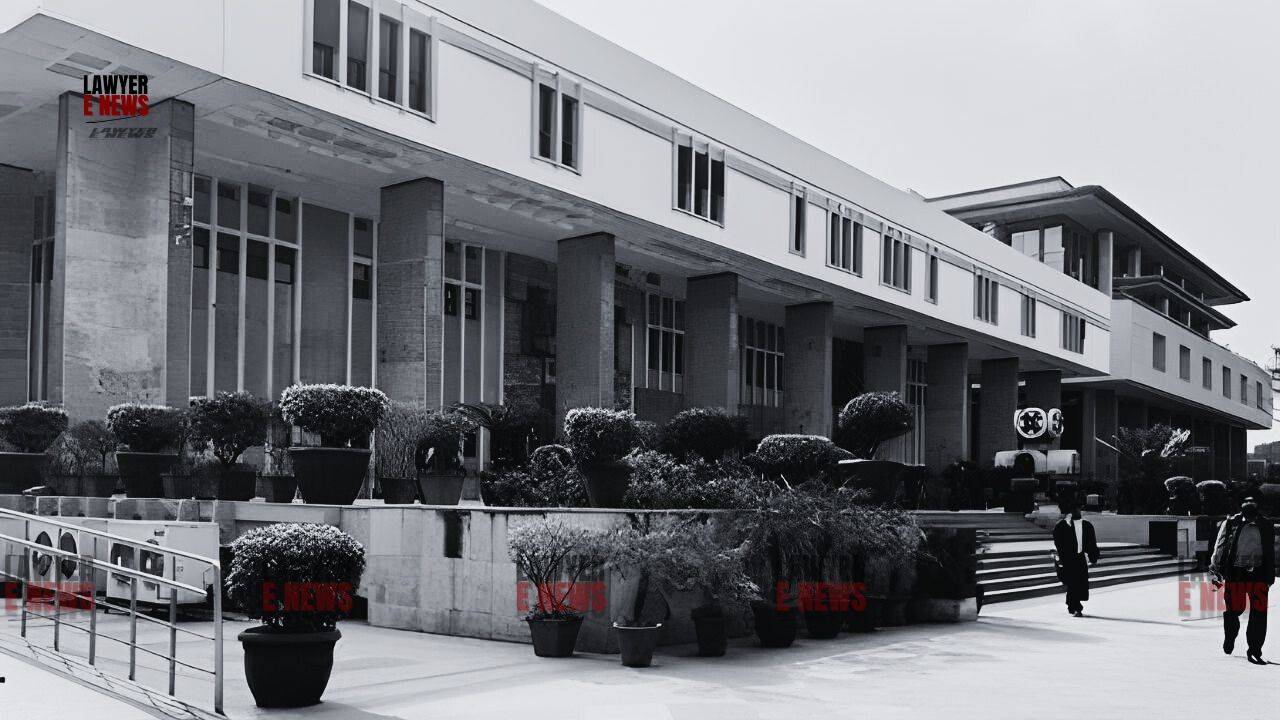-
by sayum
20 February 2026 8:24 AM



“General Allegations Made After 21 Years of Marriage, Without Specific Incidents, Cannot Justify Summoning In-Laws Under DV Act”, In a decisive ruling on 3rd July 2025, the Delhi High Court refused to summon a woman’s in-laws under the Protection of Women from Domestic Violence Act, 2005, finding that the complaint was filed “after 21 years of marriage and nearly a decade of living separately” with no specific or credible allegations of domestic violence.
Justice Manmeet Pritam Singh Arora observed that “criminal proceedings arising from matrimonial discord cannot rest on stale, omnibus, and emotionally charged claims which lack material particulars”, reinforcing the constitutional principle that criminal law must not be misused to settle personal scores or harass relatives.
The Court dismissed the petition, affirming concurrent findings of the Trial Court and Appellate Court that the complaint failed to establish a present “domestic relationship” with the in-laws, and that the allegations lacked the specificity required to justify criminal process.
In the Court’s words, “the present petition has failed to disclose any legal infirmity or perversity in the impugned orders... the complaint appears to have been filed primarily to exert pressure on the husband by involving extended family members.”
The petitioner, Poonam Gandhi, had filed a complaint under Section 12 of the DV Act against her husband, parents-in-law, and brother-in-law and his wife, seeking protection orders, alternate residence, maintenance, and compensation. The alleged acts of abuse dated back to 2001 through 2013, with some references to 2017 and 2020, but the complaint itself was filed only in November 2022.
Importantly, it was admitted by the petitioner that she had been residing separately with her husband on a different floor since 2013, and later in a separate flat altogether since 2020. Her in-laws and co-respondents had not shared a household with her since that time.
The Trial Court, by order dated 2nd February 2023, held that since there was “no domestic relationship presently existing” between the petitioner and Respondents 3 to 6, and because the complaint lacked material specifics against them, they were liable to be deleted from the array of parties.
This decision was affirmed by the Appellate Court on 10th July 2023, which noted that the reliefs sought by the petitioner—such as alternate accommodation—were not even directed against the in-laws, and thus the “reliance on shared household rights was misplaced”.
The High Court reaffirmed the limited jurisdiction under Section 482 CrPC, emphasizing that where two courts have already weighed the facts and found no abuse of process, inherent powers should not be invoked merely to revisit factual findings.
Referring to the Supreme Court's decision in Geddam Jhansi v. State of Telangana, the Court observed:
“Criminalising domestic disputes without specific allegations and credible materials may have disastrous consequences for the institution of family… Domestic relationships are sacred and criminal law must enter only with caution and clarity.”
The Court further relied on Kamal v. State of Gujarat, where the Supreme Court held:
“A few taunts here and there are part of everyday life… Specific details must be pleaded before issuing summons against family members… No prosecution should proceed on vague or exaggerated statements alone.”
Justice Arora held that in the present case, the allegations against Respondents 3 to 6 were “bald, stale and vague”, and filed only after 21 years of marriage, with no clear timeline or criminal intent disclosed.
On the claim of a shared household, the Court rejected the petitioner’s reliance on Prabha Tyagi v. Kamlesh Devi, stating:
“The petitioner is not seeking enforcement of right to reside in a shared household with the in-laws… rather, she seeks alternate residence. Therefore, Prabha Tyagi has no application in the facts of this case.”
The High Court condemned the tendency to implicate multiple family members in matrimonial disputes as a form of coercion or retaliation, noting:
“A complaint that ropes in relatives without specific roles or instances, particularly after long gaps and after the end of co-residence, cannot survive legal scrutiny. The Court must act to protect the criminal process from being weaponised.”
It also expressed concern over litigating stale grievances, where the complainant failed to report or act upon earlier episodes for years:
“There is no explanation for the delay… The Court cannot permit criminal law to be used to ventilate long-past emotional distress in the absence of current threats or continuing acts of violence.”
The High Court concluded that no relief could be granted:
“The complaint was filed more than nine years after the petitioner last resided with the in-laws… The specific allegations against them are either absent, vague, or not criminal in nature… There is no abuse of process by the lower courts, and the petitioner has not shown any perversity.”
The Court dismissed the petition, holding that proceedings against Respondent No. 4 (father-in-law) had already abated due to his death, and no interference was warranted with respect to Respondents 3, 5, and 6.
The Delhi High Court’s judgment in Poonam Gandhi v. State (NCT of Delhi) serves as a sharp reminder that criminal law demands precision, not passion. It affirms the growing judicial consensus that courts must guard against the misuse of domestic violence laws to settle long-festering matrimonial disputes or to pressure estranged spouses through extended litigation against their families.
As the Court aptly held, “The criminal process must not become a tool to harass or intimidate, especially in the name of family justice.”
Date of Decision: 3 July 2025
